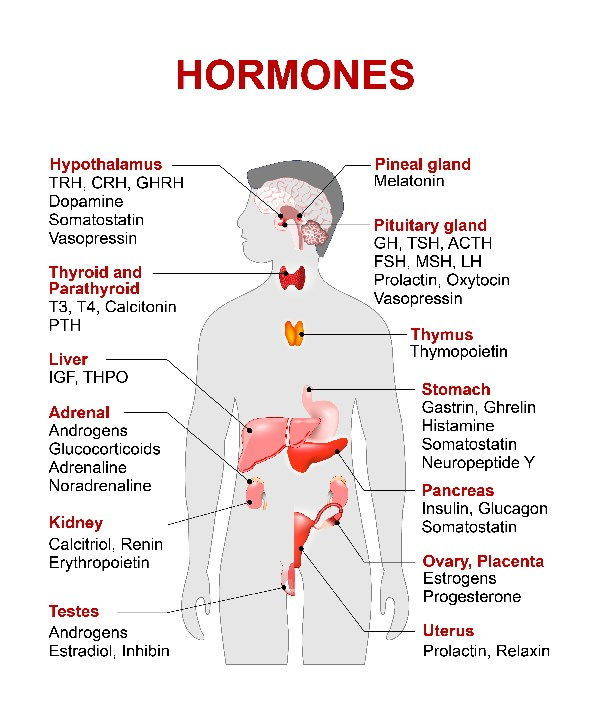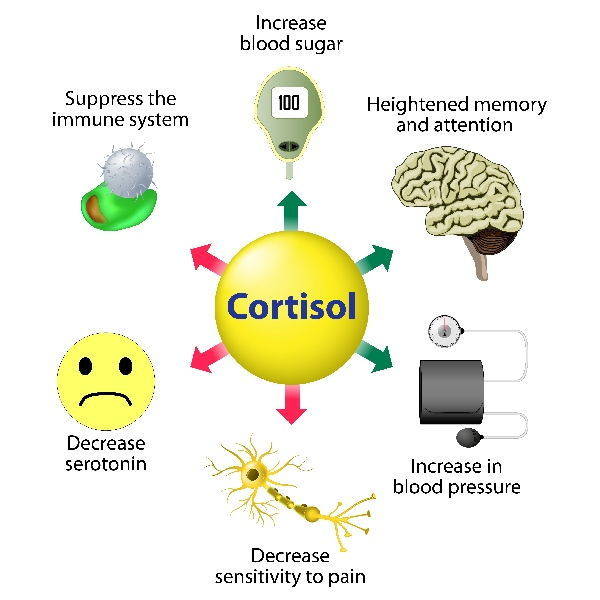What is Cortisol? When can it be defined as "high"? And what are the causes and symptoms of its excess?
Do not store avocado like this: it is dangerous What is cortisol, also known as the stress hormone and why it is better to keep it at bayIl cortisol it's a hormone synthesized by the cells of the adrenal fasciculate. The synthesis of cortisol occurs as a response of these cells to the presence of the pituitary hormone, the hormone ACTH. For this reason, it is said that thepituitary hormone ACTH is the precursor of cortisol. But when can cortisol be defined as "high"? And what are the causes and symptoms of his excess?
Cortisol is also called "stress hormone"Because its production increases precisely under very severe conditions of psycho-physical stress. With his action, it inhibits unnecessary bodily functions in the short term, supporting the functions of vital organs.
A high cortisol value can be due to either pathological causesand, such as over-functioning of the thyroid gland, both a non-pathological causes, such as - in addition to stress - a sporting activity that is too demanding or diets rich in carbohydrates.
Index
What is cortisol, functions and reference values
Cortisol is a hormone produced by the adrenal gland and carried by the blood. It is basically a hormone produced by the adrenal fasciculate cells in response to the pituitary hormone ACTH, which is therefore the precursor of cortisol.
Its production increases if you are subjected to severe psycho-physical stress. This is why cortisol is also referred to as the "stress hormone" and its values increase even after intense extreme physical exercise or surgery.
Thanks to its activity, cortisol is able to inhibit bodily functions that are not immediately indispensable. In this way it guarantees the maximum supply of energy and resources to the "vital" organs.
Hence, cortisol can:
- induce increases in cardiac output, which is the volume of blood expelled from a heart ventricle in one minute
- increase blood sugar, increasing gluconeogenesis of the liver (production of glucose in the liver), by stimulating the secretion of glucagon and by reducing the activity of insulin receptors. In practice, cortisol can reduce the ability to use glucose through peripheral tissues so much that it is possible to have an anti-insulin effect.
- reduce the immune response also decreasing any inflammatory reaction
- reduce the production of collagen and bone matrix, increasing the speed ofOsteoporosis
- help the catabolism of proteins
- help the mobilization and use of fatty acids, but in some areas of the body it helps stimulate lipogenesis.
Increases in cortisol synthesis can occur in cases of prolonged fasting or wrong eating styles.

Cortisol reference values
To measure the cortisol concentration just a blood sample. Concentration travels in relation to the circadian rhythm of the human body, so it typically is higher in the morning and lower in the evening.
The range of physiological values is (Source Inran):
Adults: ore 08:00 = 5-25 µg/dl
ore 15:00 = 2-14 µg/dl
ore 20:00 = 5-10 µg/dl
Kids: 5-10 µg/dl
Beyond these values there is "high cortisol".
High cortisol (hypercortisolism) symptoms
When the cortisol level rises and continues to be excessively high for a long period it is referred to hypercortisolism. The most common symptoms are:
- asthenia (reduced energy)
- hypertension
- inefficient immune system
- decreased sexual desire
- hirsutism in women
- abnormal changes in the menstrual cycle
- Osteoporosis
- hyperglycemia (due to insulin resistance)
- obesity
- insomnia
- disorders of the gastrointestinal tract
- lowering of mnemonic functions
- edema
It goes without saying that if conditions such as obesity, hypertension and hyperglycemia occur together, the risk of a metabolic syndrome increases.

Furthermore, an excess of cortisol for long periods can be the cause and symptoms of the so-called Morbo of Cushing, which causes redistribution of body fat, loss of muscle mass, hypertension, capillary fragility, thinning of the skin, difficulty in wound healing, osteoporosis, immunosuppression, secondary diabetes and psychosis.
High Cortisol Causes
As we mentioned earlier, an excess of cortisol is not necessarily caused by a specific pathology.
This is why the causes that trigger an excess of this hormone are distinguished between non-pathological and pathological.
Non-pathological causes include:
- stress, both physical and mental
- a sporting activity that is too intense and too long-lasting
- diets very high in carbohydrates with a high index glicemico
- certain medications such as birth control pills, spironalactone (acne contrast therapy) or prednisone (a drug that fights some inflammatory diseases)
- a pregnancy
Instead, among the pathological causes:
- abnormal and excessive functioning of the thyroid gland
- pituitary adenoma (a benign tumor affecting the pituitary gland)
- adrenal carcinoma
- adrenal hyperplasia
- lung cancer
- rectal cancer
- adenoma of the adrenal glands
How to keep cortisol in check
Keeping cortisol levels under control can and is not that difficult. Like most things that affect our health, even in the case of cortisol you have to start from the table.
Eating healthy and on a regular basis are the two essential rules. What the experts recommend is eat small meals in terms of calories but frequent (5 or more per day). Also, never forget to have a hearty breakfast and to favor the hiring of:
- complex carbohydrates such as oats
- sugar-free cereals
- wholemeal flours and their derivatives
You may also be interested in:
- 10 MISTAKES NOT TO MAKE AT BREAKFAST
- STRESS DAMAGES FERTILITY AND CONCEPTION
- MEDITATION: HOW 10 MINUTES A DAY CAN CHANGE LIFE FOR THE BETTER
Furthermore
- if you play sports, do not overdo it and rest for the right amount of time
- eliminate caffeine
- increase the hours of sleep
- stabilize your blood sugar level
- use relaxation methods, such as meditation and yoga
Germana Carillo


























